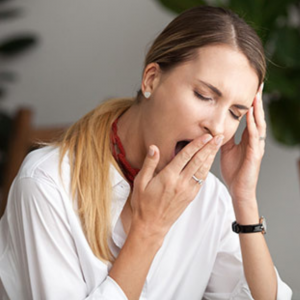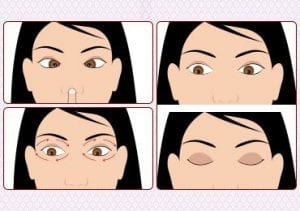Sleeping Disorder! Is this a major health issue for you? Worry not. When we ask “What is sleep”?We may sound stupid as it is such a normal and day to day chore that we take for granted. But those few hours of the day when the ever working, ever problem-tackling, ever taxing, ever racing car named “Brain” goes in a snooze zone and makes a literal Pitstop rest, cool down is Sleep. Sleep is that condition of the body where all the muscles relax and the nervous system takes a chill pill for some time that often recurs for a specified time period usually at night. It’s a natural state of rest that when we close our eyes and enter a deep state of unconsciousness.
Have a look on benefits of drinking water that you did not know before…
Who doesn’t like a soft, comfortable bouncy bed filled with ultra light and soft pillows and cheese like sheets! Just fall back and soothe your senses. That ultimate experience of doing just “Nothing”. That feeling of relaxation, just laying back, rolling over and spending the leisurely time of self-indulgence. Today’s fast paced busy life demands such calming and soothing experiences. Mechanical lifestyle calls for a rigid and fixed amount of time to sleep which is spoiling our health and gradually but surely leading us to grave medical conditions. Let’s deal with very basic issues of Sleeping Disorder.
Why Do We Need to Sleep?
We tend to think of sleep as a time when the mind and body shut down. But this is not the case; sleep is an active period in which a lot of important processing, restoration, and strengthening occurs. One of the vital health benefits of sleep solidifies and consolidate memories. As we go about our day, our brains take in an incredible amount of information. Sleeping Disorder makes the brain, but the importance of sleep to our brain function may be even more fundamental. In addition to its memory and problem-solving functions, sleep may help our brains stay sharp, young, and healthy.
If you face the issue of sleeping disorder you cannot get your body its daily tune-up. Human beings can function without a full tune-up, but they will be in a state of lack of sleep and won’t be able to work or to think as well as they do when they are fully rested. Another health benefit of sleep is to restore mental energy. We spend all day thinking and creating, and that uses up our energy stores.
How Much Sleep and Why Do We Really Need?
May sound like a stupid question to ask, but healthy sleep is critical for everyone since we all need to retain information and learn skills to thrive in life. But this is likely part of the reason children—who acquire language, social, and motor skills at a breathtaking pace throughout their development—need more sleep than adults.
While adults need 7-9 hours of sleep per night, one-year-olds need roughly 11 to 14 hours, school-age children between 9 and 11, and teenagers between 8 and 10. During these critical periods of growth and learning, younger people need a heavy dose of slumber for optimal development and alertness.
Read more the Top Banana Health Benefits that you never know before…
Importance of Good Sleep
Every creature needs to rest. Giraffes, little babies, dogs, cats, kids, grandparents, moms, dads, and giraffes in the jungle — they all sleep! Why do we really need sleep? Just like eating, sleep is necessary for survival. Sleep gives your body a rest and allows it to prepare for the next day. It’s like giving your body a mini-vacation. Sleep benefits health as it gives your brain a chance to sort things out.
Recent findings suggest that investing in sleep health contributes to maintaining brain health, and ultimately protecting cognitive functions necessary for aging-in-place. Sleepiness resulting from insufficient sleep, irregular sleep schedules, or poor quality sleep is a cause of motor vehicle crashes, occupational errors with hazardous outcomes, and difficulty performing daily tasks.
Common Reasons For Sleeping Disorder
Are you constantly complaining I can’t sleep! Do you take sleeping pills? Do you catch on sleep by taking naps? Do you keep yourself less busy during evening hours? Do you have disturbed sleep patterns? If your answer is a YES to all these questions then you are definitely suffering from Sleeping Disorder. Lack of sleep can lead you to a whole new arena of the chronic problem.
You will love to read about Garlic Health Benefits which is the the world’s healthiest herb…
Common causes of Sleeping Disorder includes –
1. Personal Choice
Some people don’t realise that the body needs adequate sleep. Instead of regularly going to bed at a reasonable hour, they prefer to stay up late to socialise, watch television or read a good book.
2. Illness
Illnesses such as colds and tonsillitis can cause snoring, gagging and frequent waking, and have a direct effect on sleep by fragmenting it.
3. Work
People who do shift work disrupt their sleep-wake cycles on a regular basis. Frequent travellers (for example, airline crew) also tend to have erratic sleeping patterns.
4. Sleeping Disorder
Problems such as Insomnia, snoring and periodic limb movement disorder can disturb the person’s sleep many times during the night.
5. Medications
Some drugs used to treat disorders such as epilepsy or attention deficit hyperactivity disorder (ADHD) can cause insomnia.
Don’t miss to read 12 Health Benefits of Coconut Water that You Didn’t Know…
6. The Sleeping Environment
Sleep may be disrupted for a range of environmental reasons; for example, because the bedroom is too hot or cold or because of noisy neighbours or a snoring bed partner.
7. Poor Sleep Hygiene
Some people’s habits are disruptive; for example, drinking coffee or smoking cigarettes close to bedtime stimulates the nervous system and makes sleep less likely. Another common problem is lying in bed and worrying, rather than relaxing.
8. Babies, Older Babies and Toddlers
Parents almost always experience sleep deprivation because their young children wake up frequently in the night for feeding or comfort.
After taking a good look at all the issues, we are facing we got to look for some solutions too! Sleep inducing tips is the way to go If you are also facing Insomnia-like problems and are spending nights twisting and turning on your bed. We help you out of this dilemma and give you some effective and very workable tricks for stunning snoozing!
Sleep Inducing Tips
1. Power Down
The soft blue glow from a cell phone, tablet, or digital clock on your bedside table may hurt your sleep.To help you sleep, turn off TVs, computers, and other blue-light sources an hour before you go to bed. Cover any displays you can’t shut off.
2. Nix Naps
To sleep better at night. But if you have to snooze while the sun’s up, keep it to 20 minutes or less. Nap in the early part of the day. Overcome an afternoon energy slump with a short walk, a glass of ice water, or a phone call with a friend.
We are giving you some facts proving why ginger is good for your health…
3. Try a Leg Pillow for Back Pain
Your lower back may not hurt enough to wake you up, but mild pain can disturb the deep, restful stages of sleep. Put a pillow between your legs to align your hips better and stress your low backless. Do you sleep on your back? Tuck a pillow under your knees to ease the pain.
4. Save Your Bed only for Sleep
To have a better sleep your bedroom should feel relaxing. Don’t sit in bed and work, surf the Internet, or watch TV. The best sleep temperature for most people is between 68-72 degrees.
5. Set Your Body Clock
Go to sleep and wake up at roughly the same time every day, even on weekends. This routine will get your brain and body used to be on a healthy snooze-wake schedule. It is crucial in sleeping better. In time, you’ll be able to nod off quickly and rest soundly through the night. Get out in bright light for 5 to 30 minutes as soon as you get out of bed. Light tells your body to get going!
6. Look for Hidden Caffeine
Coffee in the morning is fine for most people. To have a good night sleep soon as the clock strikes noon, avoid caffeine in foods and drinks. Read labels. Some pain relievers and weight loss pills contain caffeine.
Click here to have a look on the health benefits of green tea…
7. Eat Right at Night
Don’t eat heavy foods and big meals too late. They overload your digestive system, which affects how well you sleep. Have a light evening snack of cereal with milk or crackers and cheese instead. Finish eating at least an hour before bed. Such things will help you sleep better.
8. Rethink Your Drink
Alcohol can make you sleepy at bedtime but beware. After its initial effects wear off, it will make you wake up more often overnight. Warm milk or chamomile tea are better choices sort out the issue of sleeping disorder.
9. Lower the Lights
Dim them around your home 2 to 3 hours before bedtime. Lower light levels signal your brain to make Melatonin, the hormone that brings on sleep. Use a 15-watt bulb if you read in the last hour before bed. It’s a very effective sleep inducing trick.
Do you know how to get rid of dark circles naturally? Let’s get to know the amazing home remedies for black circles…
10. Free Your Mind
Put aside any work, touchy discussions, or complicated decisions 2 to 3 hours before bed. It takes the time to turn off the noise of the day. If you’ve still got a lot on your mind, jot it down and let go for the night. Then, about an hour before you hit the sack, read something calming, meditate, listen to quiet music, or take a warm bath. Even 10 minutes of relaxation makes a difference.
Sleep is one of Nature’s choicest gifts for mankind. Let’s optimize this gift to its best. Browse away in the sublime world. Dream away happily and drift into a stress-free and happy world where no tensions exist.
Happy Snoozing!



















I read through your blog post here. I wanted to ask you something though… Is it possible to deal with ADHD as an adult without medication? I’m been having a hard time concentrating at work and I feel tired all the time. Any help you could provide is greatly appreciated!
I really enjoyed the reading of sleeping disorder and really wish to have more information on it. That’s really my problem